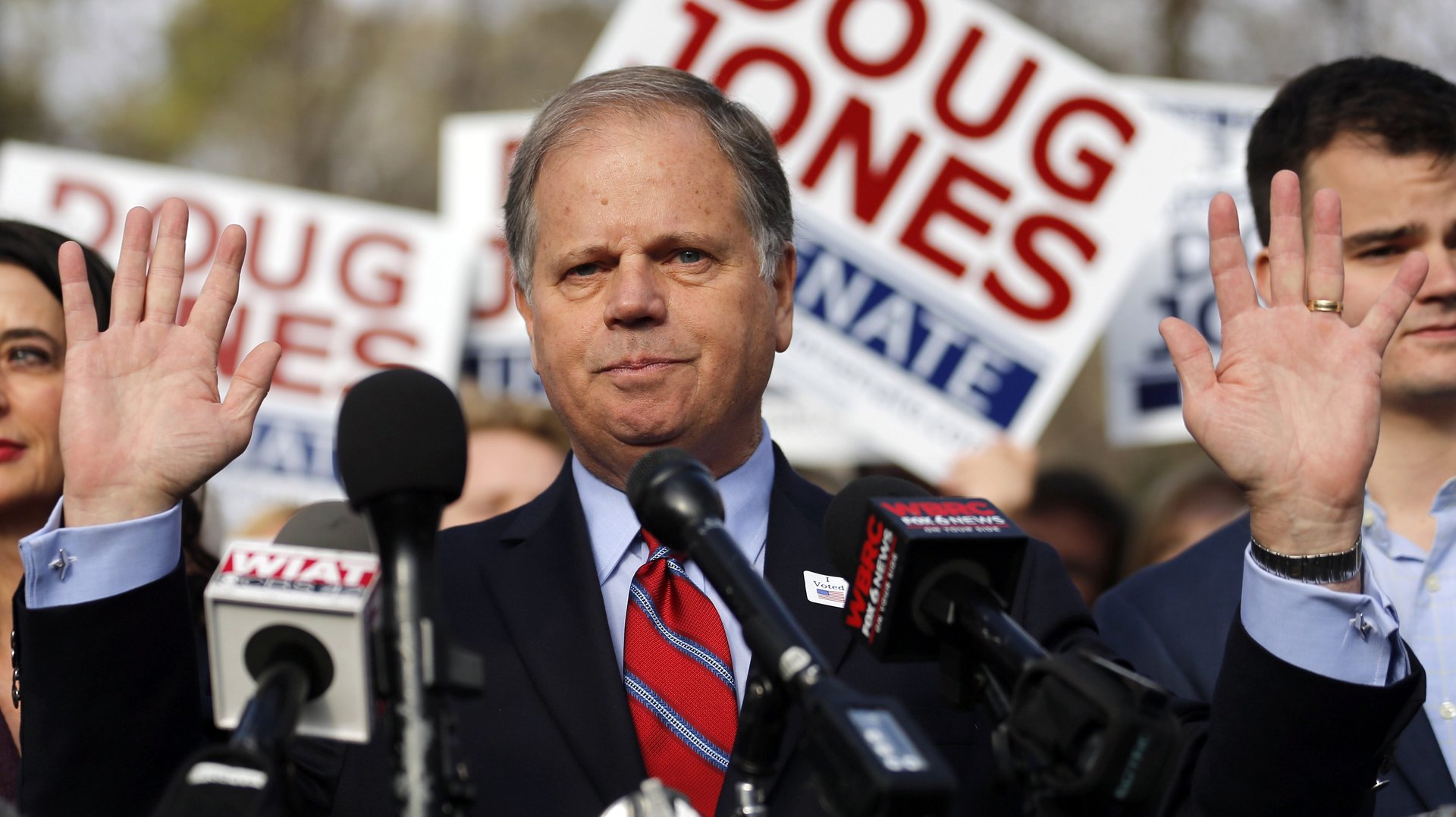A Democrat just won a historic election in one of America’s most Republican states
Doug Jones, the Democratic candidate running against Roy Moore, eked out a surprise victory in Alabama’s special Senate election tonight (Dec. 12.)


Doug Jones, the Democratic candidate running against Roy Moore, eked out a surprise victory in Alabama’s special Senate election tonight (Dec. 12.)
The victory for Jones, a former US attorney was seen as a long shot until recently. The result is a big loss for president Donald Trump, who campaigned for Moore despite accusations that the Republican judge had molested teenage girls. Jones will replace Jeff Sessions, a Republican who left Congress earlier this year to serve as US Attorney General.
The Associated Press called Jones’s victory. Preliminary exit polls showed that African-Americans, a critical demographic in the race, overwhelmingly turned out in support of Jones. The results also show a big urban-rural divide, with Jones winning the state’s big cities.
Jones will be the first Democratic senator elected in the state in 25 years. The special election results offer a big contrast to the presidential election a year ago, when 62% of the votes went for Trump.
What Jones’s win means
The Alabama race was widely followed around the country. It was seen as gauge of how public opinion had reshuffled after nearly a year of Trump’s presidency and in the wake of the #metoo movement against sexual harassment by powerful men.
For Democrats, the special election is a game-changer for the balance of power in Washington D.C. Prominent Democratic members in Congress had linked themselves to the #metoo wave at the expense of members of their own party accused of sexual offenses. The party’s strategic choice to take the moral high ground may have paid off in Alabama.
Democratic turnout in Alabama also rewarded the party’s big spending and campaigning by top leaders, including former president Barack Obama. More than a million voters—or 34% of the electorate—showed up at the polls. Before the election, local officials had estimated turnout would be at around 25%.
Moore’s victory is terrible news for the most conservative wing of the Republican party represented by Trump, which has recently experienced pushback from more moderate members on issues from healthcare to Moore himself. The party had rallied around Moore despite accusations of sexual assault against minors.
Jones’s victory signals that the clout of Trump’s base might be waning, and that the president’s Teflon-like ability to avoid the political toll of his outrageous behavior could be fading.
With Jones in the Senate, Democrats are set to enter a crucial mid-term campaign season emboldened.